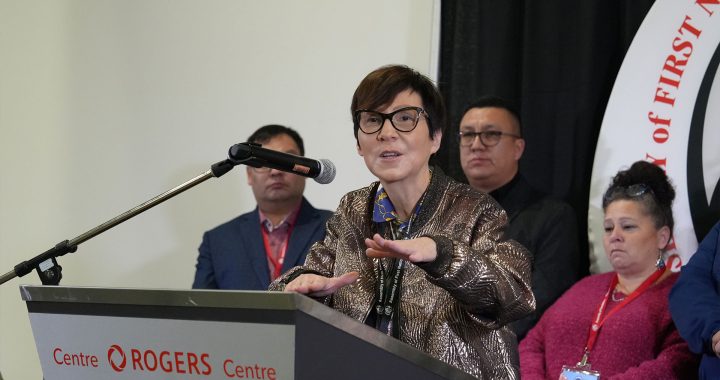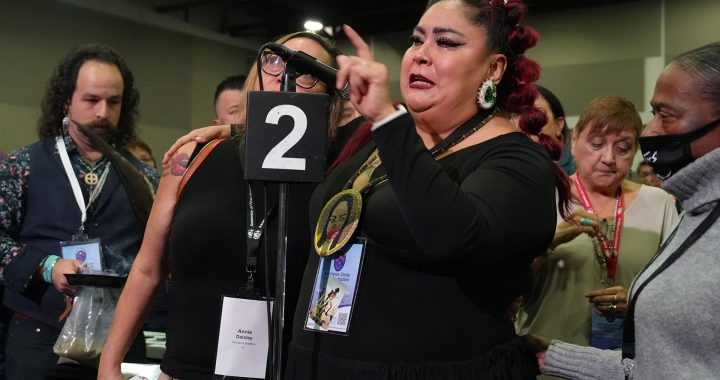
A baby girl lies in an unmarked grave in a Thunder Bay cemetery. She was found stillborn six years ago by the banks of the Neebing River on the south side of the city.
No one knows who her mother is. Or anything about her. Not even her name.
Every year on May 6, Anna Betty Achneepineskum visits, prays, smudges, lays down flowers in remembrance. Last year, they named her.
“I went with one of our Elders to the site and I said, ‘You can bring anything you want to place on her grave.’ And it just so happened that I brought a bouquet of lilies, because lilies are my favourite flowers. And the Elder, Eva (Kakepetum), brought some roses and a teddy bear,” Achneepineskum says.
“And we stood there and prayed, and as we were praying we decided then that we would name her Lily Rose considering that those were the flowers we had chosen to commemorate her life, her grave.”
They don’t know if Lily Rose was First Nations, when she was born or how long she lay there by the river.
“I just know she was a child, and to me that’s all that I need to know,” she says. “Hopefully, maybe, her family is comforted that someone – if they’re not willing to come forward – comforted with the fact that people are willing to go and place flowers where she lays and to remember and to pray for her and that way won’t forget her.”
Lily was found on May 5, 2014.
They visit May 6, when they suspect the funeral, had there been one, would have taken place. There’s no marker there now. Achneepineskum is raising money to buy one. They rely on staff to point them to the right spot.
“What we do is we smudge and then we pray, and we smudge the ground where she lays and we just pray to God that she is safe,” says Achneepineskum, who visited this year with her son and Kakepetum. “We also pray for other children as well, that they be safe and free from harm, and that they are loved.”
Achneepineskum describes herself as a Thunder Bay resident, caring citizen and child advocate. But as former deputy grand chief of Nishnawbe Aski Nation (NAN), she carries behind her over 20 years of political, legal and social justice action and advocacy work.
When asked why she commemorates Lily Rose each year, Achneepineskum brings up a similar case from 26 years ago.
In March 1994, a baby boy was found dead in a garbage bag near Boulevard Lake in Thunder Bay. This unnamed child became known as Baby Doe. He died from hypothermia after someone placed him in that plastic bag.
“We can’t forget that these kinds of horrific things happen to our children, and if we remain silent about it then we’re saying that it’s acceptable for society to treat our children this way. We need to keep remembering these two children,” she says.
And that’s what went through her mind as they stood smudging in the cemetery: the other kids she’s advocated for throughout her life.
“I feel that children, they are not treated with equality and they face discrimination,” Achneepineskum explains. “The result is that many times they don’t get justice. As in this case, with these two young children, these two children deserve justice.”
Some unsuccessful investigation went into locating Lily’s mother, Achneepineskum says.
Last year, Thunder Bay police used DNA modelling to release a computer-generated image of Baby Doe’s mother.
Nevertheless, “we may never find out who the parents are, especially with the child that’s born in ’94 – that’s going to be 26 years now,” she states.
“Part of remaining human is to remember these two. Because I’m sure there’s other people that think about these two children. But I think it’s my responsibility as a mother – and the role of a mother and the role of a grandparent – to make sure that no child is forgotten.”










